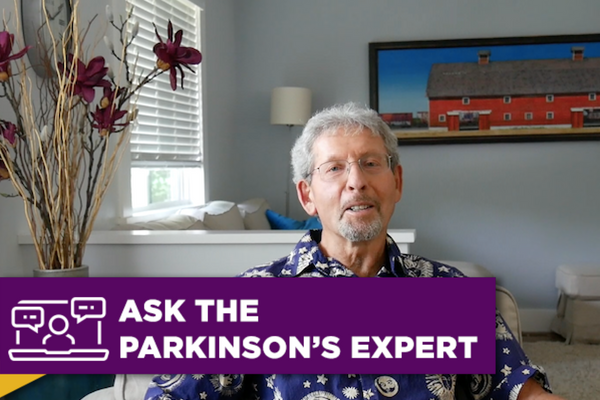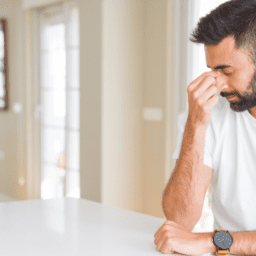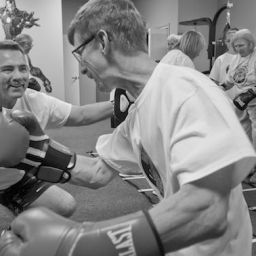Rich Wildau is a Davis Phinney Foundation Ambassador and has been living with Parkinson’s for eight years. In this video, he shares the biggest concern he faced when he was first diagnosed with Parkinson’s.
Mentioned in this video
Movement Disorder Specialist
Tremor
Handwriting
Do you have a question you’d like one of our Parkinson’s experts to answer?
Complete the form below and we’ll either add it to our video series queue, or we’ll respond directly.
[gravityform id=”12″ title=”true” description=”true”]








Hello, I have Parkinson’s, Dystonia, since age 45.
I am now 54 and preparing for a deep brain stimulation surgery find myself extremely exhausted lonely but have the best 2 neurologist in United States in UAB with all that said it’s a lonely world even though I prepare for this and have the husband that I call my saint of 30 years of marriage 3 beautiful grown children three beautiful grandchildren how can I feel alone I take antidepressants I take all kinds of medication several days of the week I seem to feel decent but then there’s days I don’t want to get out of the bed my husband basically gets me motivated and I’m out of the bed and walking or beautiful neighborhood but I’m not in it I’m not motivated I used to be a bubbly personality never met a stranger where did I go this is What Hurts the Most I used to be able to run or walk out anybody now I can’t walk across the house without losing my breath I’ve gained over a hundred pounds and lost 50 of them but basically I’m still feeling normal I tried the Michael J fox Foundation since I had Parkinson’s and I still feel like they’re commercialized are you that way too thank you for listening sincerely Paula Vandiver
Hi Paula,
Thank you so much for reaching out. Adjusting to life with Parkinson’s and having to accept the changes that come with it is so difficult. You sound very grateful to have such a great care partner in your husband and that’s wonderful. One of our Ambassadors always says that Parkinson’s brings a lot of bad and challenging days with it, but so many great ones too. He believes staying connected to the Parkinson’s community has had a huge impact on his ability to live well. Are you part of a Parkinson’s support group in your area? I hope your DBS surgery goes well and it brings relief in a lot of ways. In the meantime, you may find some value in this post: https://www.davisphinneyfoundation.org/blog/how-to-reduce-social-isolation-while-living-with-parkinsons.
My husband is experiencing hallucinations and it is increasingly difficult for him to understand why no one else sees what he sees. He wants to contact a lawyer or the police to remove people from our home and property, although so far he is not fearful just annoyed. He takes primavanserin with mixed results. This is a major challenge for us. Support groups around us seem to have exercise and speakers, but cognitive and psychological changes are the “elephant in the room”. I think facing and discussing this issue would help people know they are not alone. The foundation’s video was helpful! Thank you. We appreciate the Davis Phinney foundation!
Dear Connie,
I’m sorry to hear your husband is having a difficult time. I highly encourage you to speak with your doctor, ideally a movement disorder specialist, as soon as possible to talk about the hallucinations and if there’s anything that can be done to his medication plan to minimize them. In the meantime, you both may find this post helpful. It is a common problem, and there are some things you can do to help him through it.
Husband diagnosed last September. Now, can barely walk. Datscan shows Parkinson’s per Neurologist, but VA says it’s Parkinson’s Plus Syndrome. Anyone have experience with this.
Got diag. In sept,2018
When stress goes up,i feel,it seems to bring out
,,,,
Some temors,is there a correlation between the two.
Hi Glen – In speaking with some experts in this area, their experience in working with people with Parkinson’s is that there is a correlation between the two. Stress, which may come in the form of anxiety, lack of sleep, etc. can make symptoms worse. If this is a regular occurrence for you, I recommend working closely with your neurologist (a movement disorder specialist if you have one) and also a physical therapist. They can do an assessment of your unique situation and offer some strategies to help. Thanks for reaching out.